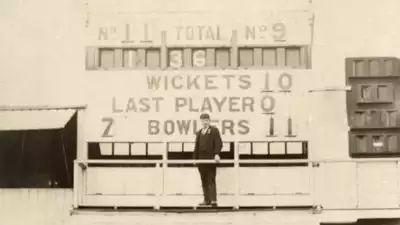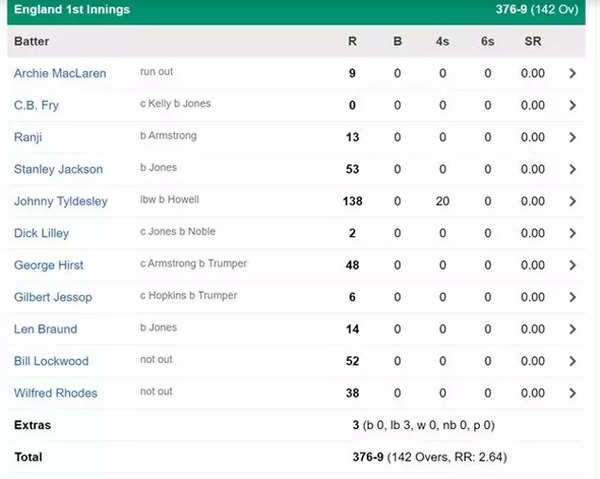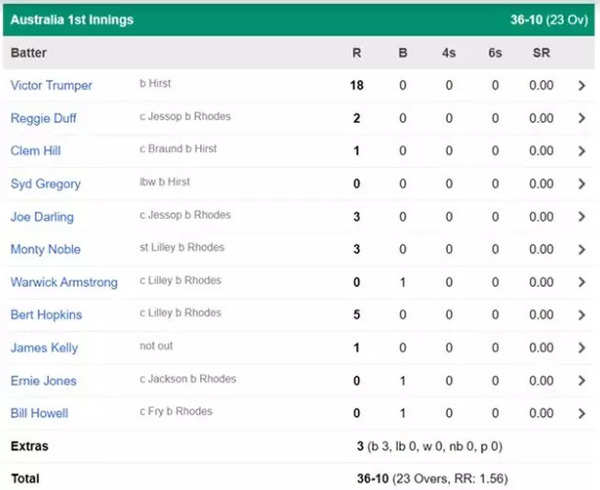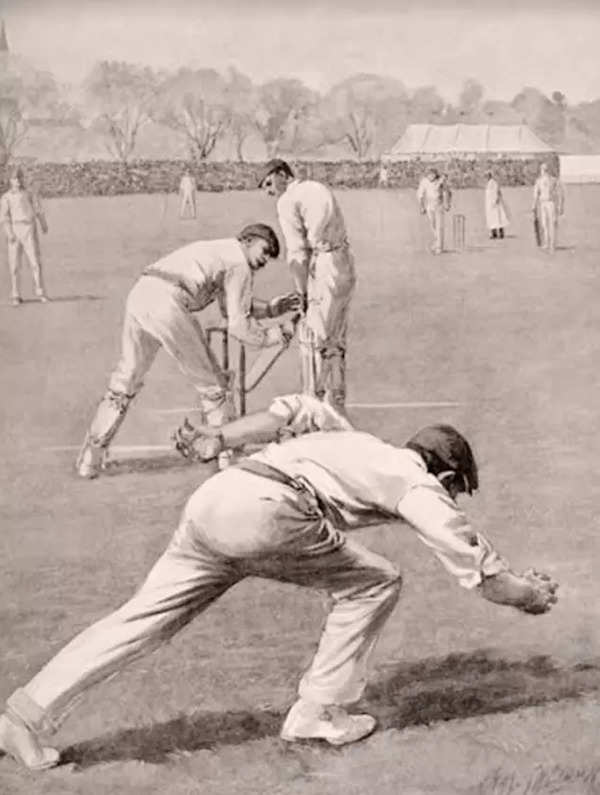Australia’s Edgbaston escape in 1902: Only time a sub-50 collapse led to a draw | Cricket News


Two weeks ago, the Indian men’s cricket team was on top of their game, defeating Bangladesh in just two days of play in the second Test of the series in Kanpur. Weeks later they went through a nightmare of sorts, scoring their lowest Test total on home soil.
Batting first, India were bowled out for a mere 46 against New Zealand in the first of a three-match Test series, at Benagluru’s M Chinnaswamy stadium.The previous lowest total for India at home was 75 all out against the West Indies in 1987 in Delhi.
“Is ‘All Out 46’ the new ‘All Out 36’?” asked Cricket Australia, sarcastically. Before Chinnaswamy 2024, India had witnessed Adelaide 2021, and Lord’s 1974 where they were bowled out for 36 and 42 respectively.
In the history of Test cricket, teams have been dismissed for a total of less than 50 runs in an innings 24 times, including India’s 46. How many times have they gone on to win the match? Just one, so far. Have any of them managed to draw the Test match? Once. Australia in … 1902.
Australia vs England, Birmingham 1902
Australia toured England in 1902 and played a total of 39 matches, including five Tests. The first of five Test matches was played at Birmingham’s Edgbaston cricket ground. Highly regarded English cricket writer A A Thompson described the team as “best integrated side that England ever put into the field”.
England captain Archie MacLaren won the toss and opted to bat first on a “beautiful wicket”, in a rain-affected Test match.
The powerful batting line-up of England, which also included KS Ranjitsinhji, declared the innings at 376/9 on Day 2, of what was a three-day Test match, thanks to Johnny Tyldesley’s 138 “which dragged England’s batting back from the abyss,” and Bill Lockwood’s 52. Ranjitsinhji scored 13. What followed was described by Wisden as “one of the chief sensations of [the 1902 season]”.

In just 90 minutes, Australia collapsed to a shocking 36 all out, with Trumper “magnificently” making half the runs. The collapse was orchestrated by the Yorkshire duo of Rhodes and Hirst, who bowled 22 of the 23 over in the innings between them.
While George Hirst took 3 for 15, Wilfred Rhodes tore the Kangaroos apart and took 7 wickets for just 17 runs, his first five-wicket haul in Test cricket, and held the joint record of most economical seven-for in Tests, until 2004. For 22 years, until 1924, Australia’s 36 was the lowest team total in a Test match in England.

Australia were forced to follow on but more rain came to their rescue. And it didn’t stop. A downpour lasting twelve hours through Friday night left the wicket unplayable, and play couldn’t resume until quarter past five. Spectators who made it to the ground were treated to just 75 minutes of cricket on the last day, during which Australia held their ground, batting through 28 overs, and losing just two wickets. The match “which England must have won if a full third day’s play had been possible” ended in a draw. “This match had everything except a positive ending,” Thomson would write years later.
Trivia: This Test match was also the debut of Edgbaston Cricket Ground in Birmingham as a Test venue. It was the youngest of England’s six regular Test venues, until Chester-le-Street was inaugurated in May 2003.

Australia won the five match series 2-1 with their only defeat at The Oval in the fifth and last Test match of the tour. Of the 39 matches played during the tour, they lost only two and won 23 of them.
Writing in 1967, A A Thompson remarked, “The Australian tour of 1902 produced a rubber more exciting than any in history except, and until, the electrifying series between Australia and the West Indies of 1960-61 which began with the fantastic tied match at Brisbane and ended with Australia’s heart-hammering victory by two wickets at Melbourne.”







